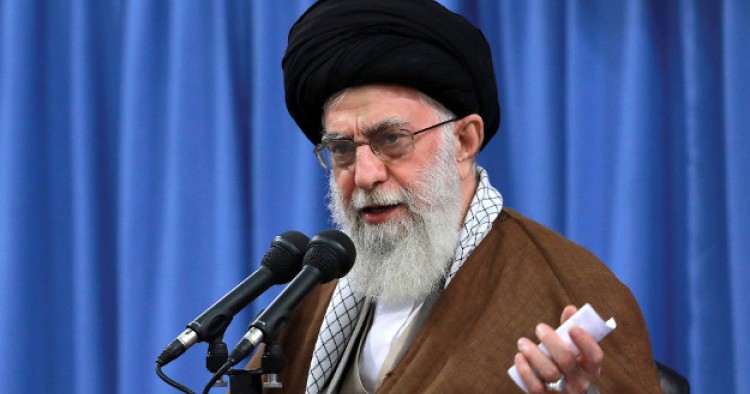On November 23, Supreme Leader Ali Khamenei said Iran would strike back if Washington renewed sanctions against the Islamic Republic. The stern warning came as the US House of Representatives overwhelmingly voted to renew the Iran Sanctions Act for another decade. Lawmakers reasoned that the legislation would provide the United States an essential leverage to compel Iran to comply with the terms of the 2015 nuclear agreement. The bill still needs to be ratified by the Senate and signed into law by President Obama.
“If this extension is put into effect and executed, it will certainly violate the JCPOA [Joint Comprehensive Plan of Action],” Khamenei protested. “And they should know that the Islamic Republic of Iran would respond to it… The nuclear agreement, or the JCPOA, must not turn into a pressure tool against the Iranian nation,” he cautioned.
While the Rouhani government has largely played down the extension bill, hardliners have argued it demonstrated that America was insincere and that President Hassan Rouhani’s nuclear deal and rapprochement with the West were a mistake. Despite Khamenei’s approval of the deal, Iranian clerics and leaders of the Islamic Revolutionary Guards Corps (IRGC) opposed the nuclear agreement from the very outset. The Iranian clergy is historically distrustful of the United States and the IRGC sees Rouhani’s opening to the West as detrimental to its political and economic interests.
With the US Congress considering additional sanctions on Iran next year and the possibility of President-elect Donald Trump fulfilling his campaign promise of annulling the nuclear deal on the one hand, and hardliners in Iran trying to undercut Rouhani’s efforts to improve ties with the West on the other, Iran and the United States appear to be on the path of confrontation once again.
The Middle East Institute (MEI) is an independent, non-partisan, non-for-profit, educational organization. It does not engage in advocacy and its scholars’ opinions are their own. MEI welcomes financial donations, but retains sole editorial control over its work and its publications reflect only the authors’ views. For a listing of MEI donors, please click here.













